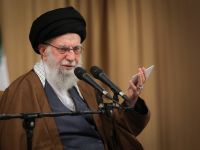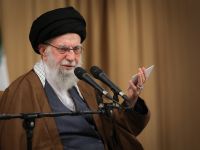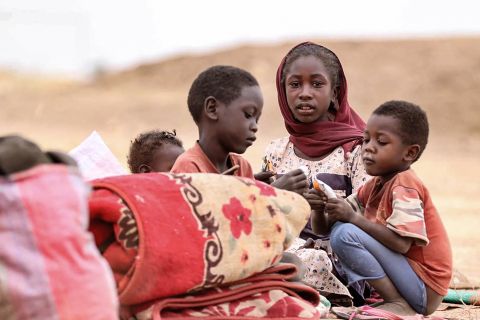Arab countries need to spend more on scientific research and vocational training

An education expert has said that Arab education system cannot progress unless there is higher spending on scientific research and a greater focus on vocational training.
UNESCO’s 2010 Science Report on scientific research, which has an entire chapter devoted to the Arab States, found that research expenditure in the Arab world has fallen short of world averages over the last four decades. It also revealed that education models in the Arab world have failed to create qualified scientists capable of tackling pressing national issues such as food, water and energy shortages, or improving public health services and driving essential infrastructure projects.
According to the report, since 2007, Egypt has been spending as little as 0.23 percent of its Gross Domestic Product (GDP) on scientific research while Tunisia spent over 1 percent. The report also noted that Qatar recently announced that it would increase its research expenditure to 2.8 percent of its GDP in the coming five years.
The report further revealed that despite the existence of reputed universities in the Arab world and an ancient tradition of innovation in science, there are only 373 researchers per million, while the global average stands at 1,081 researchers per million – a number which includes the many Arab scientists who reside in the West and, therefore, do not contribute to the growth of their home countries. These alarming facts have spurred Arab countries to finally realize that they have to invest in a knowledge economy, according to the UNESCO Science Report 2010.
“No education system, private or public, can hope to fulfill its role as a provider of job-ready graduates without adequate financial support and a more serious approach to scientific and vocational education,” said Mark Andrews, MENA Regional Director, Edexcel. “One of the reasons for Arab countries’ lack of progress in creating a business-savvy generation is the absence of proper dedicated budgets in this field.”
Andrews added: “Vocation education can play a key role in enhancing scientific research in the Arab world. We at Edexcel offer the Higher National Certificate (HNC) and Higher National Diploma (HND) programs in Applied Biology and Applied Chemistry that can help in accelerating the pace towards the creation of a knowledge economy.”
HNDs and HNCs are practical, work-related courses that are created following consultation with employers and professional bodies to ensure that they are relevant to the industry for which they have been created. Consequently, the qualifications provide learners with the skills and knowledge necessary for the industry. For example, the HND in Applied Chemistry allows learners to gain invaluable practical laboratory research experience. Moreover, because of their high quality, these qualifications are accepted by a number of universities worldwide as equivalent to either one or two years of an undergraduate degree. For example, an HND is usually considered equivalent to two years of undergraduate university study while an HNC is regarded equivalent to the first year of undergaduate university study.
The report further points out that according to estimates by the UNESCO Institute for Statistics unemployment within the R&D community is high, especially among women researchers, who constitute around 35% of the total researcher community in Arab countries.
Meanwhile, over 30% of the population of Arab countries is below 15 years of age. This is a double-edged sword for Arab decision-makers. Young populations can stimulate growth and create dynamic societies, particularly if they are well educated and gainfully employed. However, the fact that Arab governments have been unable to expand the productive capacity to create a repository of jobs may well result in social upheaval. In 2007, the World Bank estimated that the region would have to create over 100 million jobs by 2020 to employ the young men and women joining the employment market.
As part of its thought leadership role in the region, Edexcel is triggering a debate on how effectively governments are meeting the requirements of scientific research and how their education plan can be upgraded to be on par with international universities.
Edexcel, the UK’s largest awarding body, is part of Pearson, the world's largest provider of education services. It offers academic and professional qualifications and testing to thousands of schools, colleges, employers and other places of learning globally, and has over 4 million learners enrolled on its highly regarded courses in more than 85 countries.
Regionally, Edexcel’s partners include the National Institute for Vocational Education (UAE), the Sharjah Institute of Technology (UAE), and the Bahrain Training Institute (Bahrain).
Background Information
Bahrain Training Institute
Bahrain Training Institute (BTI), a well-reputed vocational training centre that was established by the Ministry of Labour in August 1992. The primary goal of BTI is to contribute to the skills development of the national workforce in accordance to the current and future needs of the labour market.
It was established with an objective of providing high quality training that meets the needs of all types of industries in the region.
National Institute for Vocational Education
The National Institute for Vocational Education (NIVE) was established in the United Arab Emirates (UAE) in 2006, in conformity with the directions of His Highness Sheikh Mohammed Bin Rashid Al Maktoum, the UAE Vice President, Prime Minister and Ruler of Dubai, in order to provide students with the opportunity to gain specific job competencies geared to enhancing their employability. NIVE is an autonomously managed organisation affiliated with the Knowledge and Human Development Authority (KHDA).







